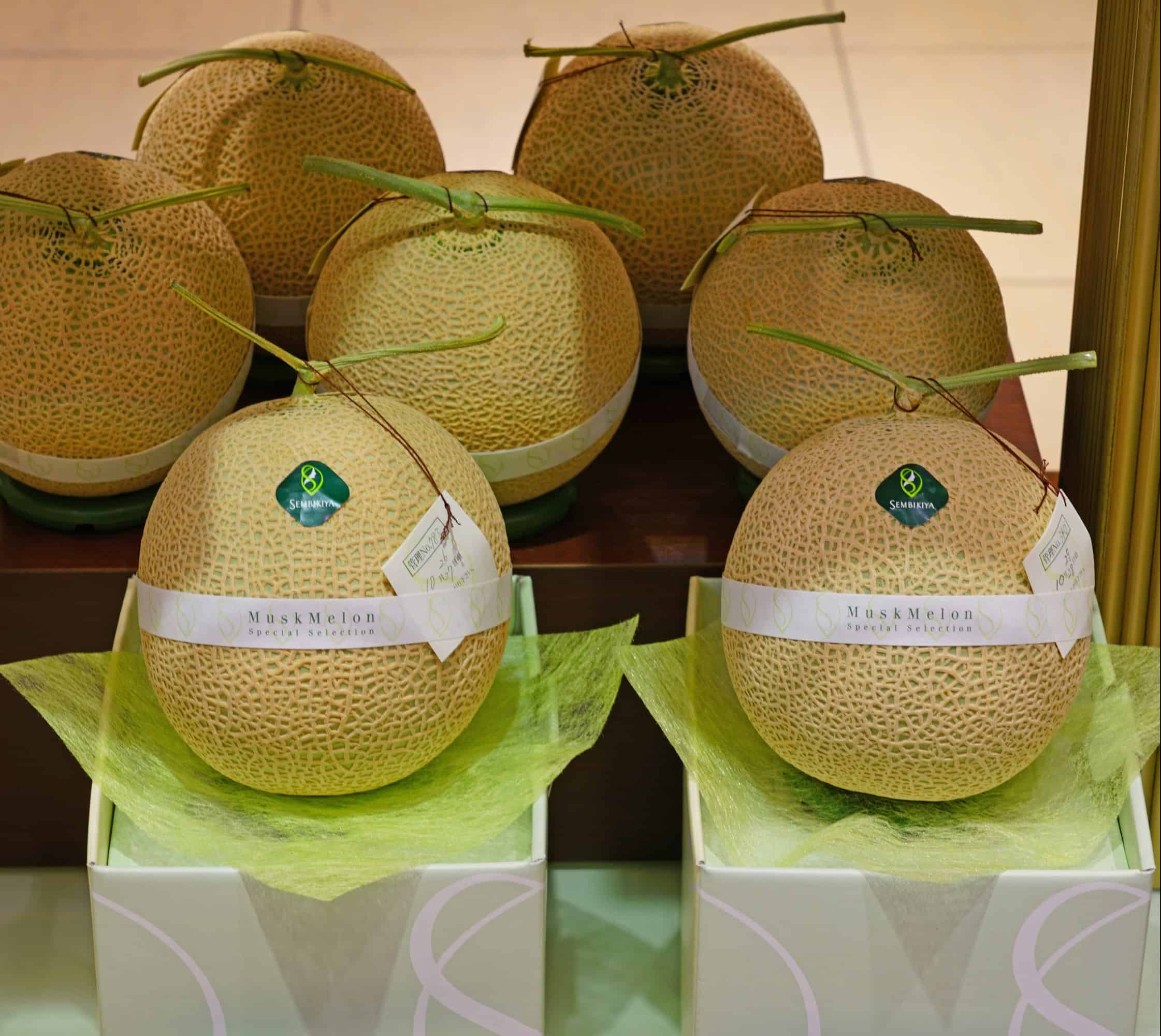Did you know? It’s customary in Japan to gift high-end — and high-priced — fruit for special occasions. From impossibly sweet, heart-shaped watermelons to hand-pruned cherries, perfectly cultivated fruits are an intrinsic part of Japanese gift-giving culture.
You might be wondering if your local produce section’s organic raspberries could make the cut in these elite fruit circles — and the answer is, well, no. In Japan, there is a market for fruit that is only found in upscale retail spaces including food halls and small, dedicated boutiques. And while fruit is most often consumed as a snack in Western society, the Japanese save fruit for the end of a meal, or dessert.
We’re not looking at everyday apples and oranges, here; Japan’s grocery store pears and peaches are priced fairly reasonably. But if you’re looking for some of the country’s most unique and mouth-watering fare, Japan’s fancy fruit scene is for you.

What makes them a luxury?
Luxury fruit shops are the final destination before a meticulously cultivated fruit is purchased for consumption. The high-end yield is grown in Japanese farms, where some farmers have spent as long as 15 years perfecting the size and shape of their produce. A strawberry in a perfect “scoop” shape or a vine of ruby-red grapes, each globe-shaped fruit is filled with the sweetest juice imaginable.
Prize melons are only grown under the best conditions. Apples are hand-pollinated individually. Golf ball-sized strawberries take 45 days to raise. And only a few of the fruits make the cut. In Japan, fruit is regarded as a symbol of respect, commonly offered to the gods on Buddhist steps and butsudan, or home altars. With a hefty price tag and jewelry store-style packaging, fancy fruits are given to a boss or any other individual who is considered “important” as a sign of respect.
Where can you find them?
If you’d like to check out some of this beautiful, refined fruit, check out Japan’s oldest fruit shop, Sembikiya, located in Tokyo. There, you’ll find heart-shaped watermelon for $100 and the famous Yubari musk melon, grown in Hokkaido, for $160 a piece.
For a more accessible experience, the 150-year-old establishment, which resembles a high-end jewelry store, also offers an all-you-can-eat fruit tasting for $40 per person.
The dazzling food halls in most upscale Japanese department stores, known as depachika, typically sell these specially cultivated fruits too. A stroll through the vast and fascinating retail areas are well worth the time. And before you exit, splurge on a $10 orange to get a sense of the radically different taste of a Japanese fancy fruit.

